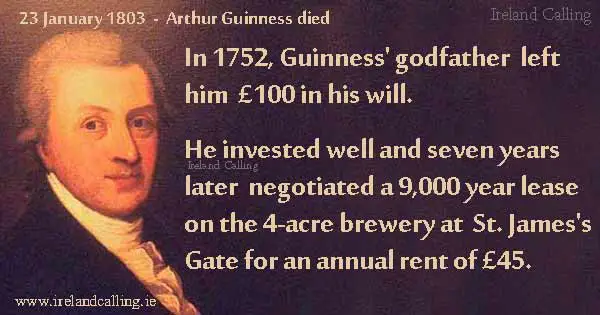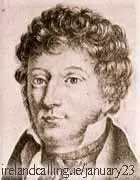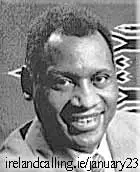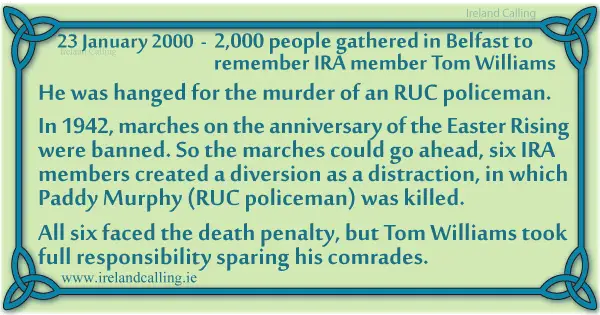january-top.html
1803 On this day in 1803, Arthur Guinness died in Dublin. After receiving a £100 inheritance from his Godfather, Guinness bought a brewery when he was 27. He took a 9,000 year lease on the 4-acre site of the brewery at St. James’s Gate for an annual rent of £45. That still stands today.
The business Guinness set up is now one of the biggest beer companies in the world, and sells 850 million litres of the black stuff each year. The Guinness store house is one of the biggest tourist attractions in Dublin, with Queen Elizabeth II and President Obama some of the famous faces that have visited.
 Click here for more about Guinness – Ireland’s most famous drink
Click here for more about Guinness – Ireland’s most famous drink
Click here to read about more tourist attractions in Dublin
* * *
 1837 John Field died on this day in 1837. He was a pianist, composer, and teacher. He was well respected by his peers, and his work is said to have been a major influence on other famous composers, most notably Frédéric Chopin, Johannes Brahms.
1837 John Field died on this day in 1837. He was a pianist, composer, and teacher. He was well respected by his peers, and his work is said to have been a major influence on other famous composers, most notably Frédéric Chopin, Johannes Brahms.
He is best known today for originating the piano nocturne (later made famous by Chopin). A nocturne is a musical composition that is inspired by the night. He travelled to Russia and enjoyed the life and culture there – he was influencial in the development of the Russian piano school.
* * *
1949 Happy birthday to Noel and Pádraig Duggan, born on this day in 1949. The Donegal boys were part of Irish folk group Clannad, but now tour as a duo and have worked with the top names in Irish music including Órla Fallon and Moya Brennan.
Click here to read more about Clannad
* * *
 1976 Paul Leroy Robeson died on this day in 1976. Robeson was a supremely talented man who studied law in New York while playing in the NFL.
1976 Paul Leroy Robeson died on this day in 1976. Robeson was a supremely talented man who studied law in New York while playing in the NFL.
He went on to become a successful actor and singer and recorded a version of Thomas Moore’s song, The Minstrel Boy. He used his profile to fight for racial equality and became involved in the Civil Rights Movement.
Click here to read about the background of the song, the Minstrel Boy
* * *
2000 On this day in 2000, more than 2,000 people gathered in Belfast to remember IRA member Tom Williams, who was hanged for his involvement in the murder of a Royal Ulster Constabulary policeman.
In 1942, the Northern Irish government banned any marches on the anniversary of the Easter Rising. Six IRA members, including Williams, planned to create a diversion in Belfast, so that the authorities were distracted and the marches could go ahead.
The IRA’s diversion resulted in the death of RUC policeman Paddy Murphy, and the six IRA men were arrested. No one was sure who had fired the fatal shot, and all six men faced the death penalty.
Williams took full responsibility for the attack, sentencing himself to death and sparing his comrades.
He was hanged at Crumlin Road Gaol, Belfast aged just 19. While Williams awaited execution in his cell, he wrote a message on playing card that read:
“To ever who receives this to pray for me always & pray for the cause for which I am dying. God Save Ireland.”

Click here to read more about the Easter Rising 1916
* * *
2000 The Bishop of Cork and Ross made an historic appeal to his parish on this day in 2000. For the good of the Cork community, the Catholic leader asked his congregation to make contributions towards the multi million pound restoration of the city’s Protestant cathedral.
january-bottom.html